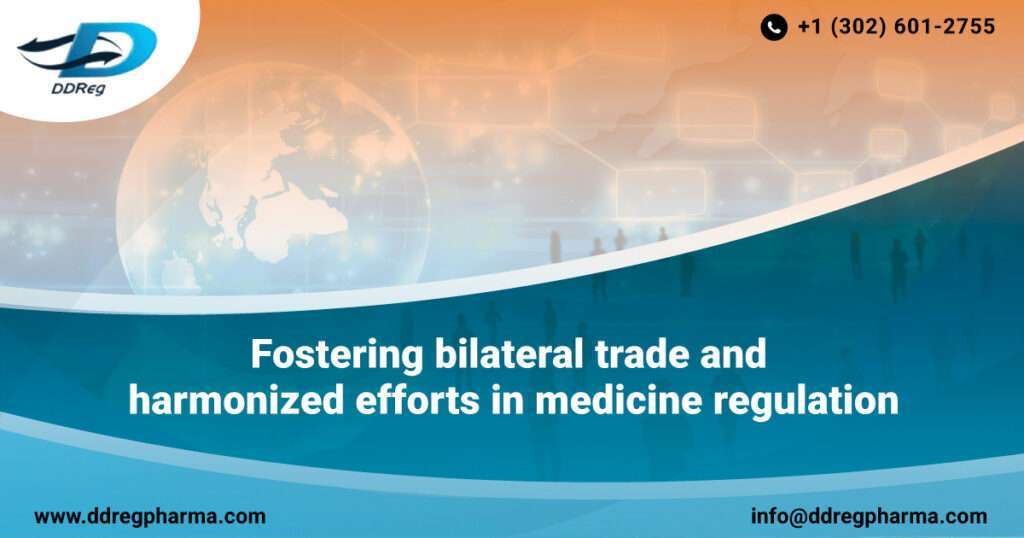The importance of aligning pharmaceutical regulations in the development process has become increasingly evident particularly in the current era that has characterized by global interconnectedness. Indeed, the need for harmonizing frameworks that govern medicine regulation and subsequently supporting bilateral trade has increasingly become imperative. As various pharmaceutical markets go beyond borders, disparities in their respective frameworks post serious challenges that can hinder the seamless entry and flow of medicines across different regions. Inevitably, regulatory harmonization allows nations to streamline approval processes surrounding medicines. However, a key outcome of this harmonization is facilitating more efficient international trade in medicines to ensure safe and effective medicines are accessible by the public. It also acts as a catalysis for strong economic cooperation between countries.
A recent example is the Memorandum of Intent (MOI) signed by India and Netherlands to cooperate on medicine regulation and enhancing the quality of these products, including healthcare services, for both nations. The Netherlands and India share strong diplomatic, economic, and commercial ties. Bilateral trade and investment between the two countries have reached significant milestones, with the Netherlands being India’s largest trading partner in Europe and the 4th largest investor. The Indian pharmaceutical industry, renowned for generic medicines and low-cost vaccines, plays a pivotal role in this relationship, with India accounting for a substantial percentage of global vaccine production.
Insight into the Indian and Dutch Pharmaceutical Industry
The Indian pharmaceutical industry ranks third globally in production volume and tenth in value. Predominantly generic, it is governed by laws for a generic market. India is a major pharmaceutical hub, exporting medicines to over 200 nations, with a robust research and development ecosystem. India’s pharmaceutical industry is a global leader in supplying generic medicines, vaccines, and low-cost HIV drugs. The sector’s annual turnover is projected to increase from $50 billion to $130 billion by 2030 and $450 billion by 2047. The industry’s strengths lie in its affordability, high quality, and significant contributions to global vaccine production.
The Dutch pharmaceutical market is currently valued at $5.7 billion and is projected to experience a compound annual growth rate (CAGR) of over 2% from 2022 to 2027. Concurrently, the Dutch medical devices market, valued at $4.0 billion in 2021, is expected to grow at a CAGR of over 3% during the same period. The pharmaceutical market in the Netherlands presents lucrative opportunities for companies due to increased investments in research and development (R&D). The market’s growth is attributed to the rising demand for medications to treat chronic diseases, driven by the country’s aging population.
There is immense potential for further collaboration between India and the Netherlands, focusing on equity, affordability, supply chain resilience, cross-border investment, and partnerships, particularly in vaccine raw materials and pharmaceutical products.
Memorandum of Intent - harmonizing medicine regulation
The MOI signifies a significant step towards collaboration between India and the Netherlands. This agreement facilitates constructive dialogue on laws and regulations relevant to medical products, covering a broad spectrum of matters. One key objective in the MOI is the exchange of information, including Pharmacovigilance, highlighting a commitment to transparency and shared insights in medical product regulation. The MOI envisions collaborative efforts between Pharmacopeia experts, emphasizing collective expertise in ensuring the quality and safety of pharmaceutical products. The agreement outlines initiatives for capacity building and coordination at international fora, reflecting a comprehensive approach to regulatory cooperation.
The collaboration between India and the Netherlands through this MOI aims to enhance the quality of pharmaceutical products and healthcare services in both nations. By establishing a framework for dialogue and cooperation, the agreement seeks to create a conducive environment for mutual growth in the medical product sector. This collaboration aligns with the broader goals of the World Local Production Forum (WLPF), an initiative spearheaded by the World Health Organization (WHO). The WLPF serves as a global platform for discussions on improving the availability of medicines and health technologies, emphasizing the significance of international cooperation in addressing health challenges.
At its core, this collaboration underscores the shared commitment of India and the Netherlands to global health and harmonization for medicine regulation. The Memorandum of Intent serves as a testament to the proactive efforts of India and the Netherlands in shaping a collaborative and harmonized approach to medical product regulation, contributing to the broader goal of ensuring access to safe and effective healthcare globally.
Conclusion
International harmonisation in pharmaceutical regulation is an ongoing process that involves collaboration among regulatory authorities, industry stakeholders, and international organisations. The examples of the Netherlands and India illustrate the commitment of countries to align regulatory standards, enhance the quality of pharmaceutical products, and ensure global access to safe and effective medicines. As the pharmaceutical landscape continues to evolve, sustained efforts in international harmonisation will be crucial to address emerging challenges and promote public health on a global scale.
DDReg provides compliant end-to-end services in regulatory affairs and pharmacovigilance to facilitate rapid market access for pharmaceutical products. These include generics, biosimilars, biologics, vaccines, medical devices, etc. DDReg has a wide global reach and has successfully registered products in various markets with no queries from the respective health authorities. To know more about efforts made with respect to bilateral trade and harmonized efforts read the previous blog on ANVISA & ANMAT: Mutual Recognition Agreement for Medical Devices.

